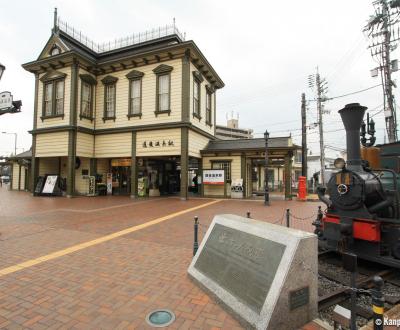Japanese Literature
Dive Into the Soul of Japan
Japanese literature is more than fifteen centuries old, and developed thanks to various foreign influences and sometimes in isolation then spread to the world from the second half of the 20th century. Poetry is one of its creative pillars, but it also produced one of the world’s first novels.
The classics’ creation
Japanese antiquity (between 590 and 794) was strongly influenced by Chinese literature regarding the writing of founding narratives and development of Japanese myths, of which the most famous are Kojiki ("Records of Ancient Matters") and Nihon Shoki ("Chronicles of Japan"). The poetry anthology Man’yoshu ("Collection of 10,000 leaves") gathers thousands of poems in Japanese language, or waka.
During Heian period (794 – 1185), fiction and diary were the thriving genres. The writings mainly described life at the Imperial Court in:
- The Tale of Genji (Genji Monogatari) by Murasaki Shikibu;
- The Pillow Book (Makura no Soshi) by Sei Shonagon
The Middle Ages, beginning in Kamakura period (1185 – 1333), was a troubled time when society was dominated by warriors. Zen Buddhism strongly influenced religious stories and epic tales, such as The Tale of the Heike (Heike Monogatari).
From the Modern Times to the early 20th century
The Modern Times in Japan are characterized by the country’s isolation and the development of an urban popular culture: it is the Golden Age of theater, and especially of Kabuki plays, and poet Matsuo Basho (1644 – 1694) invented a new poetic form, the haiku.
At the end of the 19th century, the more than 200 hundred years long Japanese isolation came to an end, which allowed the development of various styles:
- The I-novel (Watakushi shosetsu), short stories based on their authors’ real life episodes,
- Novels dealing with the contemporary world and the sense of alienation incurred by modernity (Natsume Soseki),
- Mystery novels, with Edogawa Ranpo, who added a typically Japanese ero-guro touch.
Literature inspired by Japanese history and traditions remained popular, especially thanks to writers such as Akutagawa Ryunosuke, Eiji Yoshikawa, and Yasushi Inoue.
Contemporary times
Since the second part of the 20th century, Japanese writers have been prominent actors of the world’s literature and were distinguished by two Nobel prizes: Yasunari Kawabata in 1968 and Kenzaburo Oe in 1994. More recently, Haruki Murakami’s books enjoy an international success.
Japanese literature is largely appraised for the escape it offers while being quickly read, with novels and short stories purposely short to focus on what is essential.
Below, you will also find a selection of books to read before traveling to Japan with a practical perspective, such as travel guides, Japanese conversation guides and tips to learn Japanese, English-Japanese translations and other books to discover.

